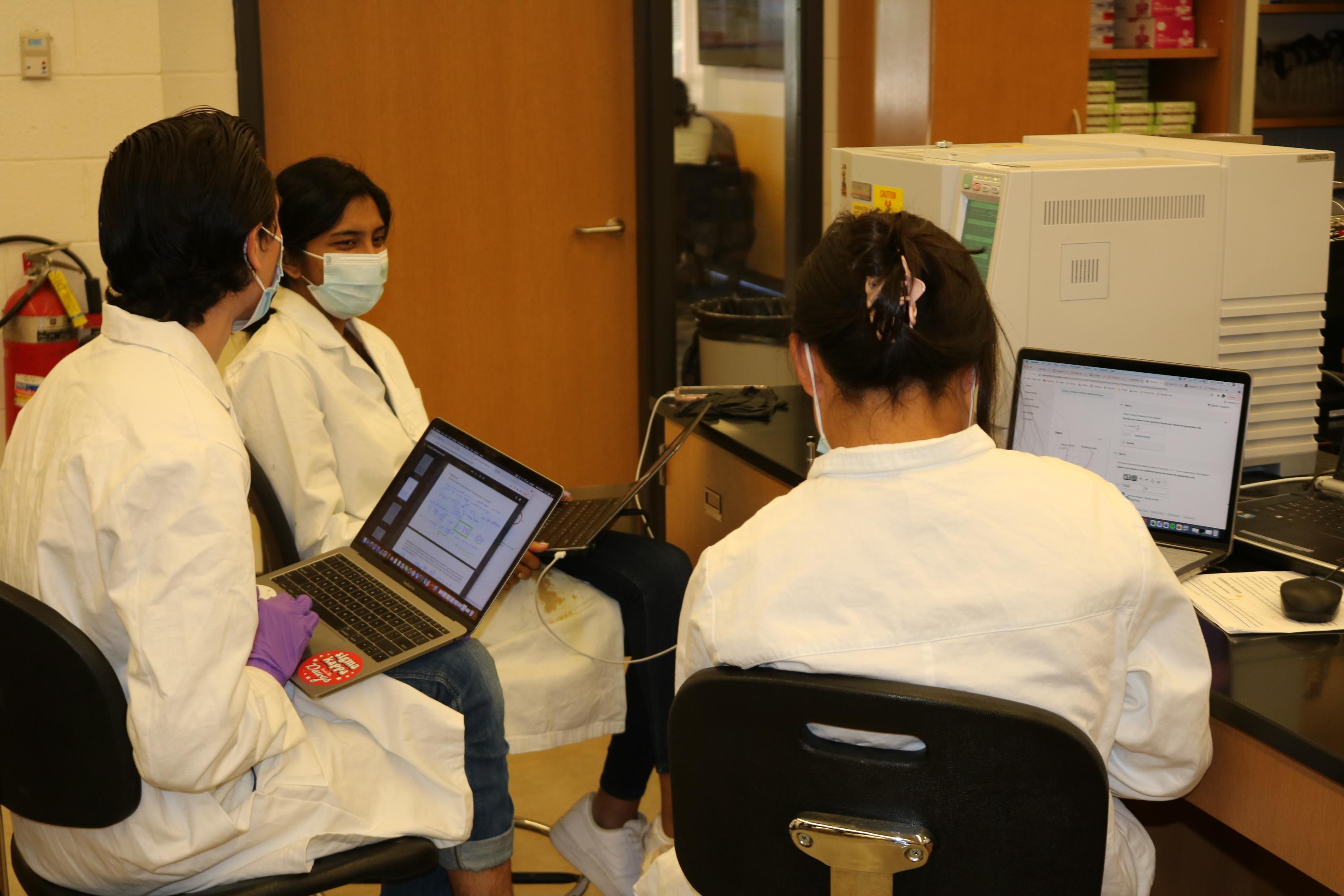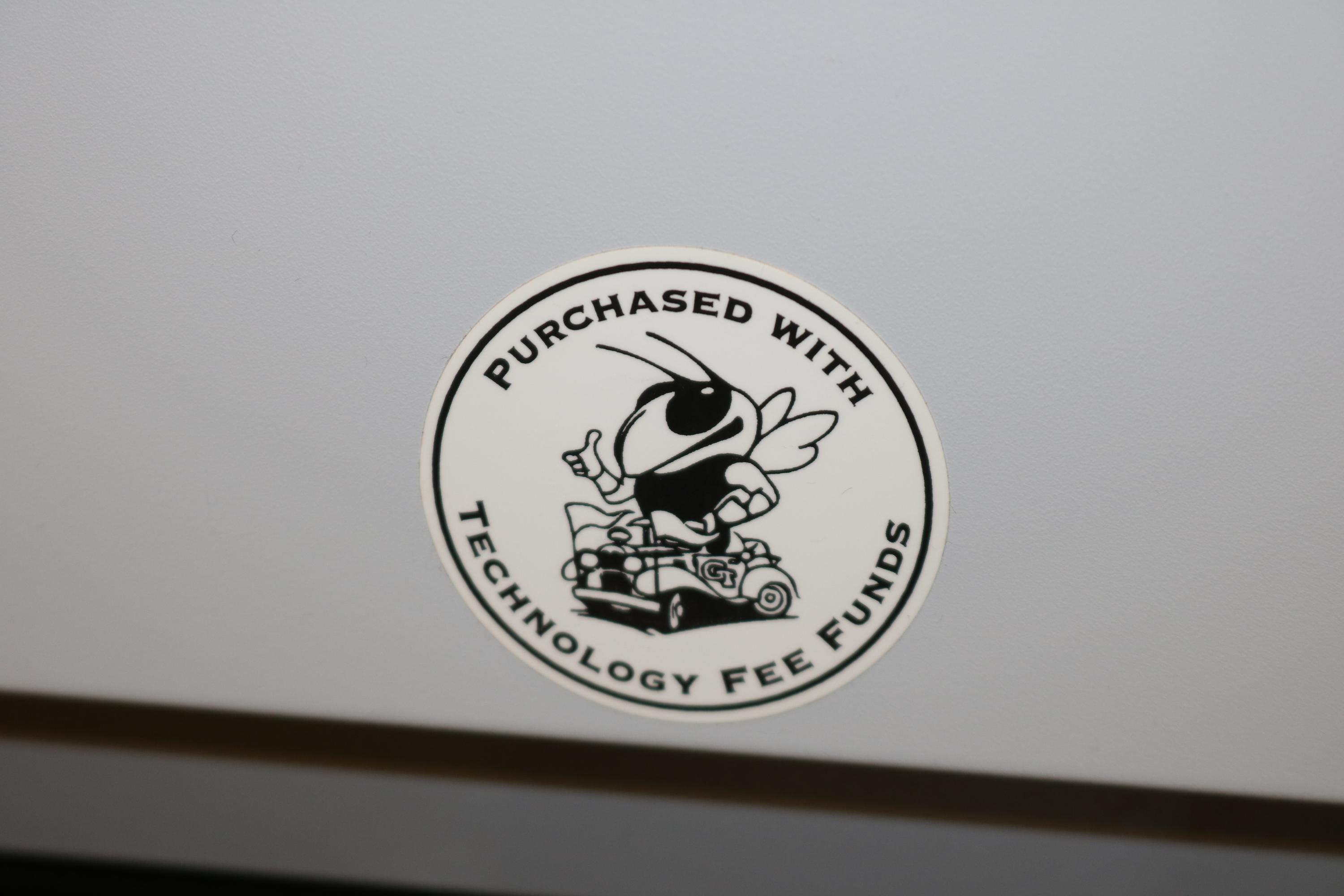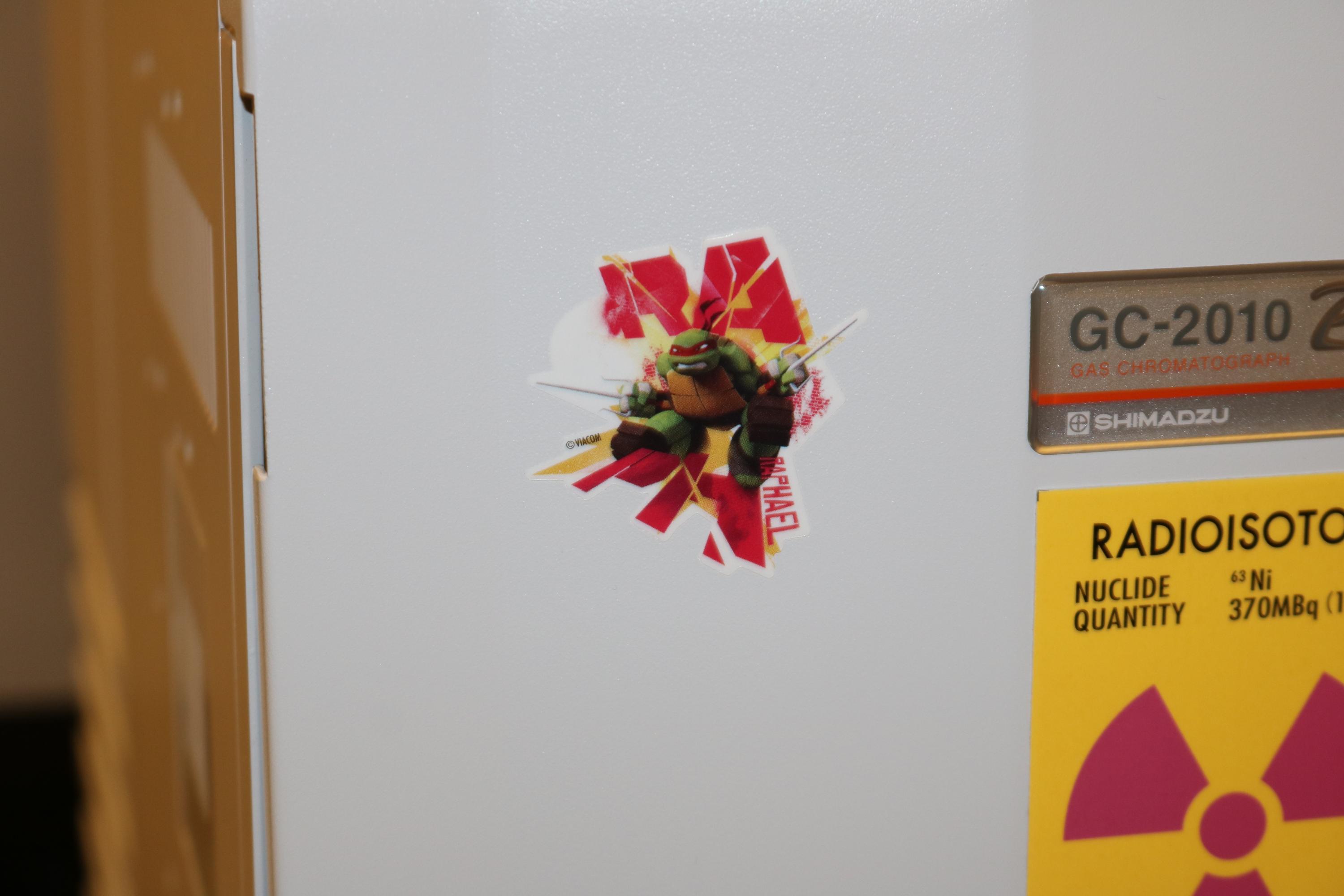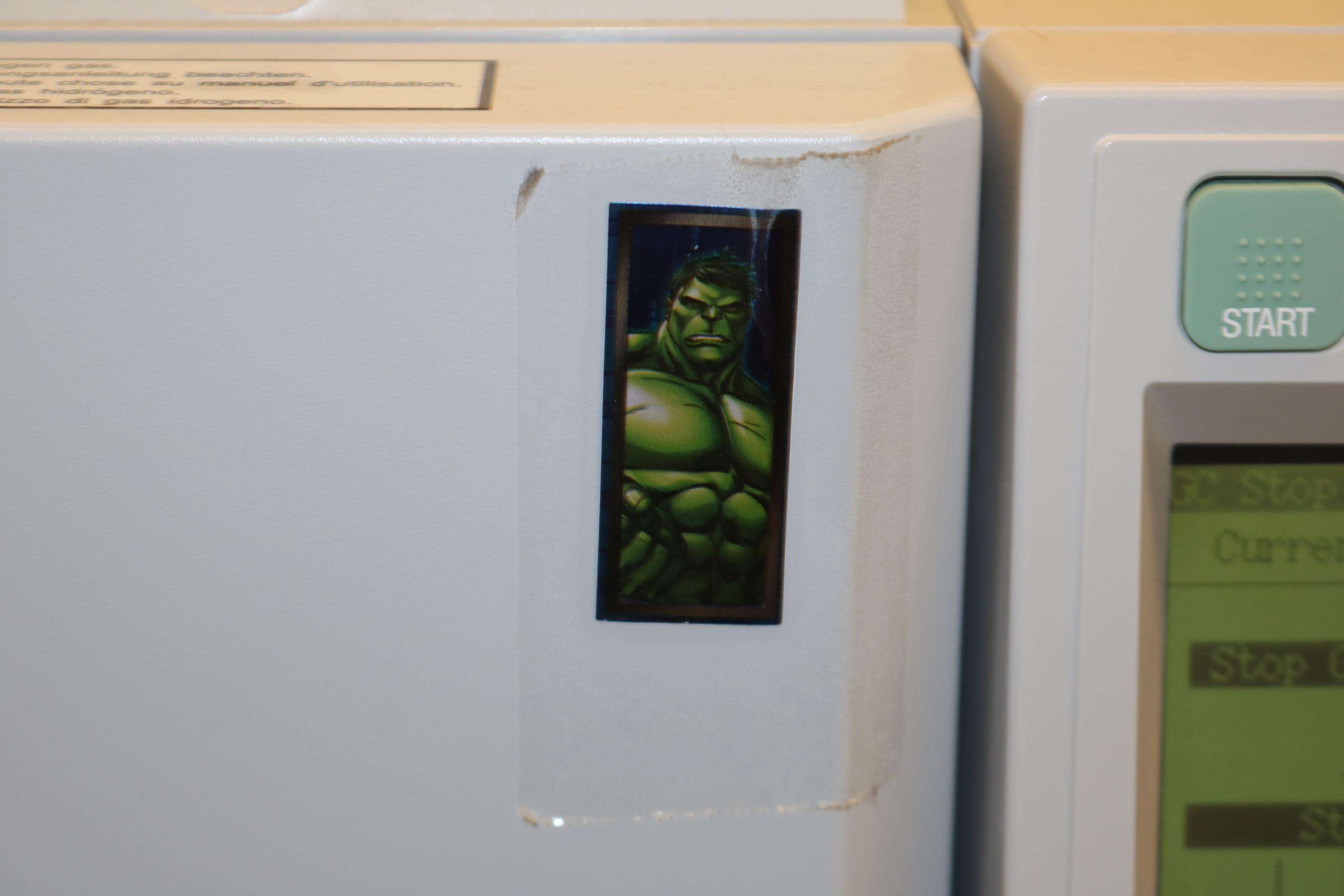Some of the instruments in Christy O’Mahony’s Analytical Chemistry Lab are split into two groups: The Avengers and Teenage Mutant Ninja Turtles.
The stickers that students and O’Mahony, senior academic professional in the School of Chemistry and Biochemistry, have placed on the equipment are appropriate: ‘Thor, Hulk, Iron Man, and Captain America’ denote equipment that breaks apart and transforms materials into their chemical and molecular components — while the ‘Mutant Turtles’ machines safely look for and analyze possible trace amounts of radioactivity in materials.
Each machine sports a sticker with another popular public figure — Tech’s very own Buzz ringed by a halo saying: “Purchased with Technology Fee Funds.”
Tech Fees “make a huge difference in putting sophisticated instrumentation into our teaching labs,” says David Collard, senior associate dean in the College of Sciences and professor in the School of Chemistry and Biochemistry. “This allows us to provide our undergraduates with experiences that are far beyond what is available at other institutions.”
“Most curriculum would have an instrumental analysis class, an analytical chemistry class where students are taught the concepts of this in a chemistry curriculum,” says O’Mahony. “But it’s unusual for them to have the access to actually do the measurements.”
The lab’s latest Tech Fee-funded purchase, a laser-induced breakdown spectrometer, will provide more accurate measurements of chemical components in materials. An earlier purchase, a capillary electrophoresis instrument, helped O’Mahony and a graduate student publish a research paper detailing a new applied lab exercise on analyzing phenylketonuria (PKU), a birth defect.
“I think the students being able to put on their curriculum vitae that they have done these techniques, they know these software packages, and [that] these are all the exact same ones that industry has, is a huge help for them,” O’Mahony says. “And I've had quite a few students who I've provided references for who have gone into quality control. ‘They say they're familiar with this equipment. So, what level did they use it?’,” she says companies often ask. “Well, they sat down and ran the whole thing, and fixed a problem.”
Hear from a few of O’Mahony’s students on their experiences with the equipment and instruments:
Dhruti Triveti, third-year biochemistry major
“I did not expect being able to use equipment like this. I did not know that the technology would be this high — that the equipment that we're able to use is very cutting-edge, I believe — and some of this is used in industry, which I think is really a good stepping stone to what we want to do in the future.”
Jack Winn, fourth-year biochemistry major:
“This has given me a chance to dive into a different field of chemistry, and see, as I'm preparing to graduate, which field I want to go into.
That's actually part of the reason I came to Tech. I knew that we had these available resources and cutting-edge technology that would put me at an advantage, I suppose, to other schools.”
Julianna Mercado, third-year biochemistry major:
“I'm able to be a little bit more comfortable going into different jobs, or research internships or something like that, rather than just be, ‘oh, how do I do this again?’ I feel like it gives me a better advantage with that — and that's a good thing.”
Scot Sutton, graduate biochemistry student and Analytical Chemistry Lab teaching assistant:
“One of our experiments for the first rotation is flow injection analysis, which, in a lot of ways, is if you kind of took out the guts of one of our liquid chromatography instruments. That's actually how I explained it to the students — there's a lot of different tubing, so they get to see how the reaction takes place over time and get to see what the differences are between a batch process that they might do by hand, versus what the instrument itself can do. And they see different ways to approach chemical problems they might run into.”
A list of recently purchased College of Sciences lab and classroom equipment, instruments, and resources powered by Tech Fee funds:
Neuroscience/Biological Sciences — Instruments that use light to measure and manipulate the activity of neurons, and read electrical signals from specialized cells triggered by light/photons to learn about neurological activity.
Biological Sciences — Equipment for "western blotting" protein identification procedures, allowing Intro to Biology students to visualize the presence of proteins downstream of various molecular biology techniques. Fall 2021 students are using it to explore the SARS-CoV-2 spike protein.
Earth and Atmospheric Sciences — Equipment for Kendeda Building EAS Teaching Labs
Chemistry and Biochemistry — Next-Level Laptops for the Biochemistry Teaching Laboratories
Physics (Neuroscience) — Electrophysiology instruments, allowing students to record the activity from neurons and hearts for Georgia Tech’s new advanced neuroscience curriculum.
Earth and Atmospheric Sciences — Equipment and resources for the EAS 1600 courses, including Introduction to Environmental Science and Habitable Planet.
Biological Sciences — Biological safety cabinets
Neuroscience (Biological Sciences) — Microscopy in Neuroscience Undergraduate Laboratory
Psychology — Psychology Research Methods, including instruments for eye tracking and skin galvanic response, which measure how the body responds to various emotional states.
Biological Sciences — Green Lab-Living Building Ecology; more campus wildlife data gathering for conservation studies; proposed building of towers on Tech campus for tracking bird migration.
For More Information Contact
Renay San Miguel
Communications Officer II/Science Writer
College of Sciences
404-894-5209






